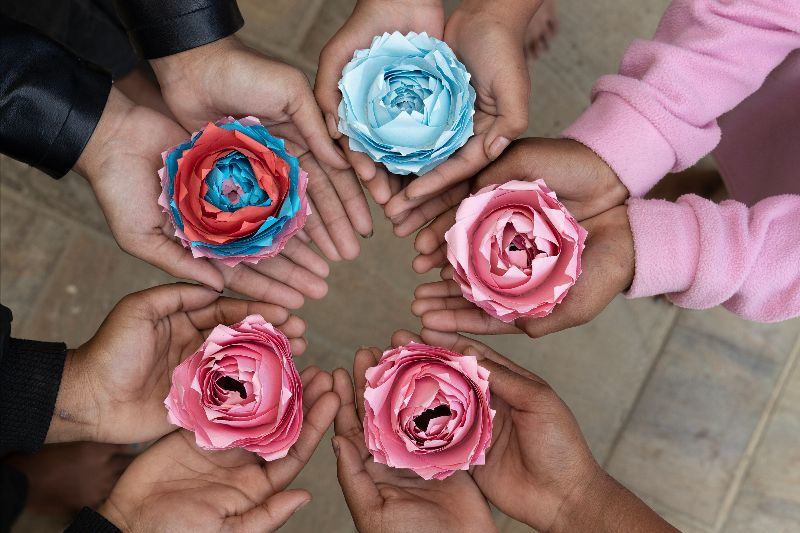Many factors, including the pandemic, global conflicts, and natural disasters have greatly impacted economies around the world. COVID-19, for example, halted travel for several years, affecting tourism and setting back local economies dependent on the industry. As a result, many countries are still in a state of economic collapse and are struggling to address high rates of unemployment and business closures. At the same time, devastating earthquakes, floods, landslides, and other natural disasters have only added to the stress that communities are facing.
As if addressing these challenges were not enough, we are also dealing with the rise in the costs of goods and services. With Russia’s invasion of Ukraine, unexpected food shortages, and widespread shrinkflation (when companies downsize their products), our funds are no longer going as far as we hoped, and there seems to be no end in sight.
While all of us have been affected by inflation, the rising costs in our partners’ communities mean that many already vulnerable populations are at serious risk. When their communities face economic distress, education, health, and human rights development all face major setbacks. In communities where schools are difficult to access and families have limited financial resources, children and youth are forced to drop out of school to support their families. In our partner communities, children often have to find low-wage farming or illegal work, or are even forced to get married to ease the burdens of their families. As a result, no one in their family completes their studies and the cycle of poverty in their communities continues.
The families that our partners support also do not have the means or resources to access quality healthcare services and often do not seek treatment when their or a family member’s health is at risk. If funds are even more limited, they will likely not go to see a doctor until their condition is very serious resulting in community members losing their lives from illnesses that were initially treatable.
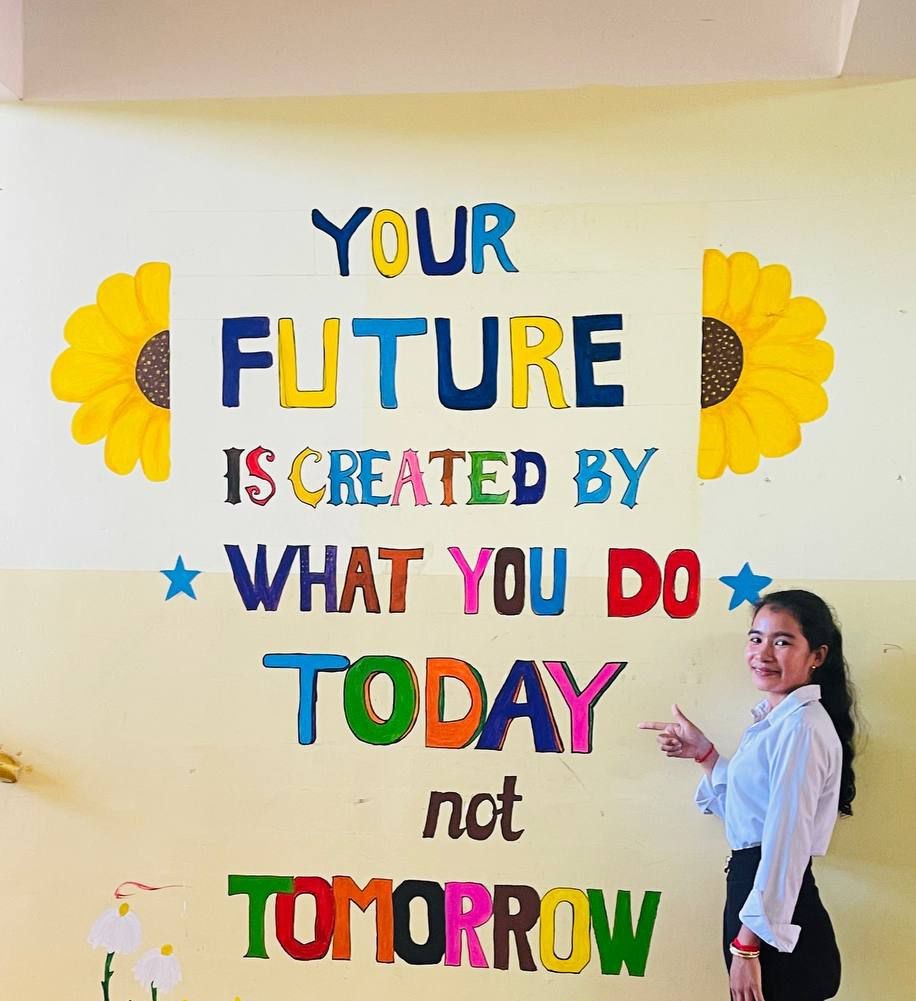
Our partners also support individuals who are from marginalized communities, like indigenous groups, women, and special needs individuals who experience higher rates of abuse in times of crisis. In particular, women and children are trafficked at higher rates due to families’ increased desperation and their lack of finances.
Our partners’ work is more crucial to the safety and well-being of their communities than ever before. Unfortunately, the funds that our partners have worked incredibly hard to raise are not going as far as they need them to. Travel and transport, as well as purchasing food and supplies, are becoming more expensive by the week. Many of them need to expand their services and increase their staff to meet the needs of their communities but are actually being forced to downsize due to inflation.
We wanted to get some insight as to how our partners are handling the many challenges they are facing due to inflation, any of their lessons learned in recent years, and what they believe is crucial to their communities’ recovery.
India: Vikalp Sansthan – Usha Choudhary, Co-Founder and Executive Director
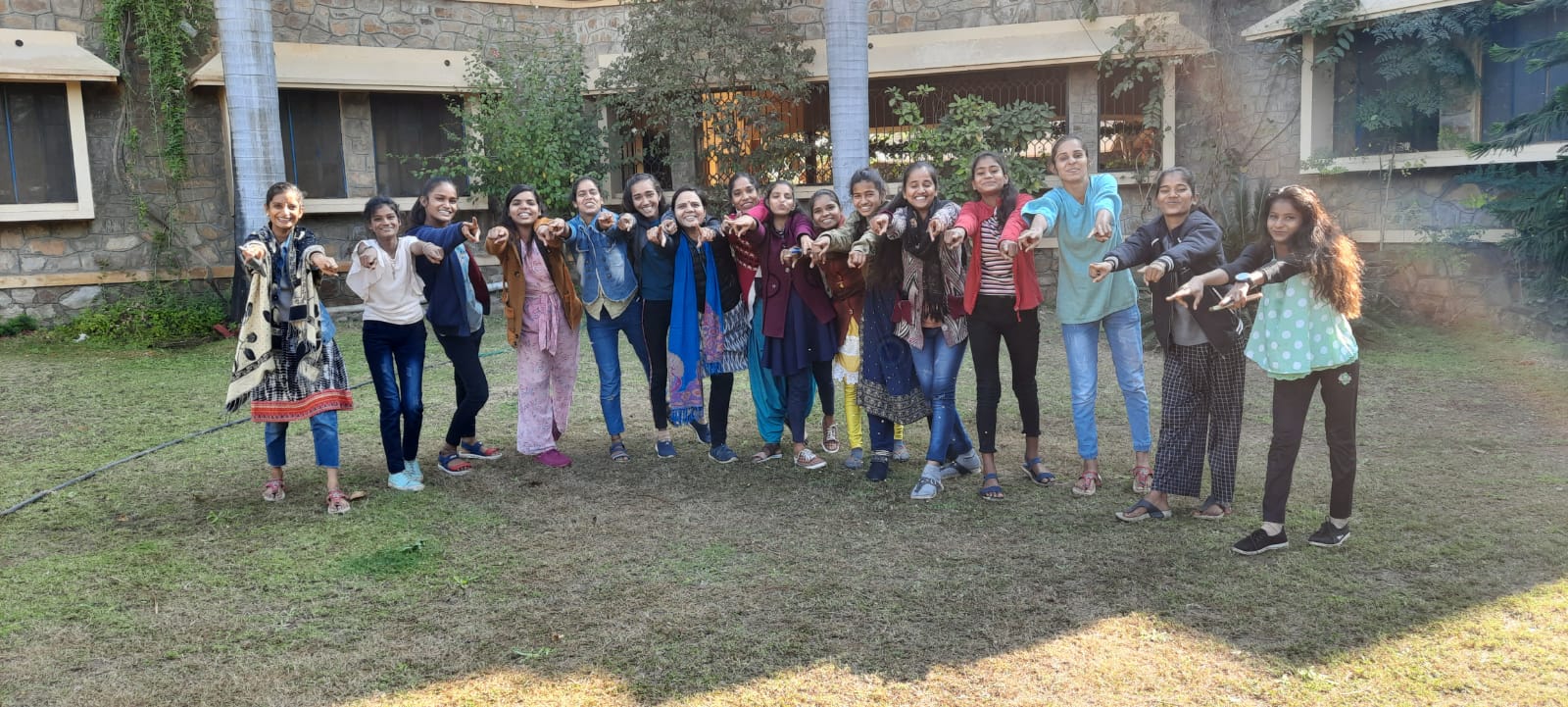
What challenges are you facing due to inflation?
There are multiple challenges faced by us due to inflation-
- It creates difficulty in budgeting. Fluctuations in prices make it impossible to accurately forecast the expenses and make the budget. It has led to higher costs of conducting an event or a workshop than the funds we received.
- Another measure issue is the retention of staff. With inflation, there is a major impact on salaries and the operation of the organization. This leads to a loss of expertise and experience. We hence hire freshers even for demanding positions. It has impacted the cost of operating an organization. For example, transportation costs increase, making it more expensive to transport goods and staff to and from project sites.
- It has reduced purchasing power; hence, we purchase the same goods and services for hire costs. We are unable to expand our operations and programs. We require more funds to carry out the same activity and the same population. It also leads to a decrease in the quality of materials bought.
How have these challenges impacted your communities?
Vikalp works with socially and economically disadvantaged and vulnerable communities. Inflation has impacted these communities negatively as it has become difficult for them to earn one square meal for the family. The cost of living rises, making it more difficult for families to afford basic necessities like food, housing, and healthcare. Their purchasing power has also been reduced. Due to this, they are unable to fulfill the basic needs of the families. Despite several beneficial government schemes in which they receive pensions, or free education and food, it is difficult to afford food, clothes, and shelter. They are unable to save or have a secure future. Due to this, they are focusing on their basic needs rather than attending schools or getting involved with Vikalp. It impacts health and education, increasing dropouts which leads to a rise in child, early, and forced marriages as girls are considered a liability.
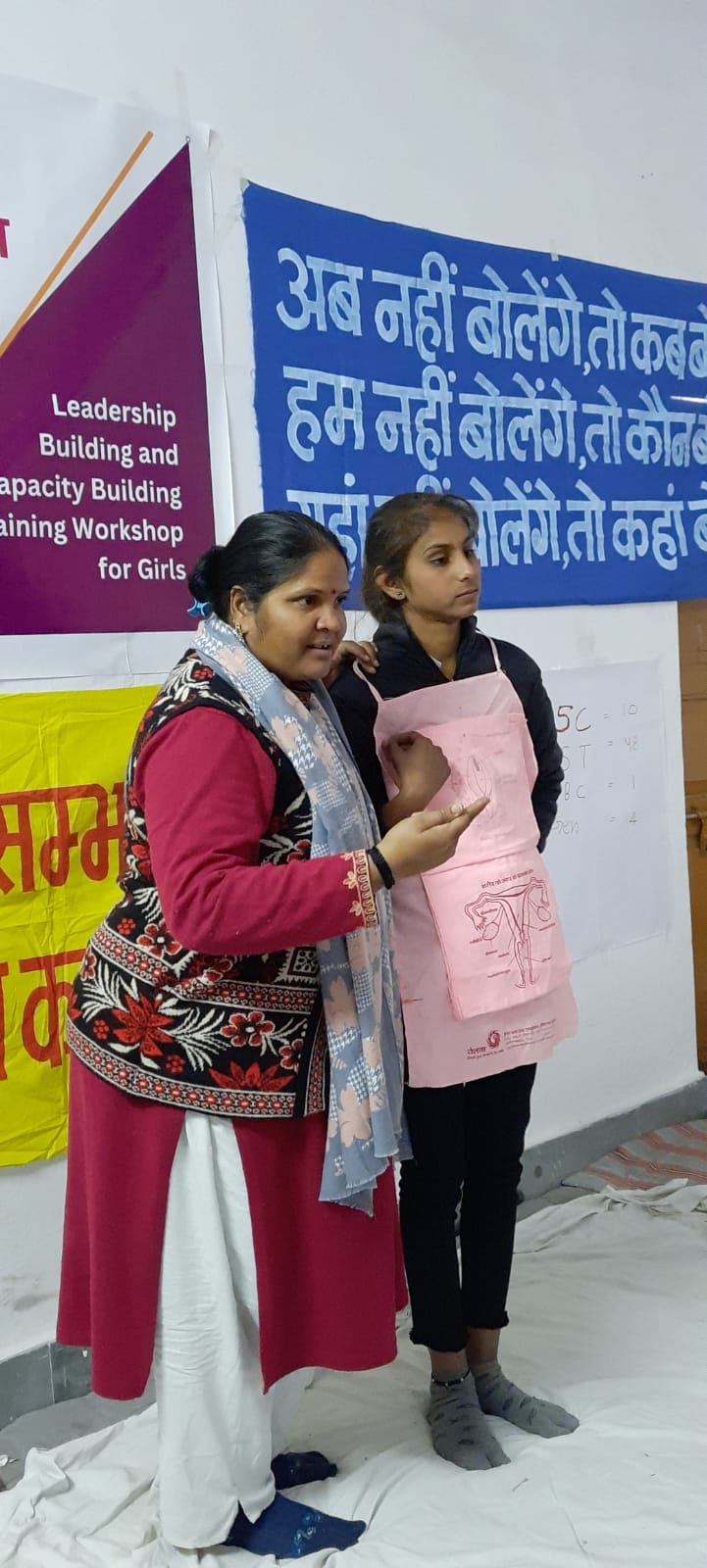
Covid and inflation combined have increased unemployment. Community members start working in places that are hazardous to their health. They get involved in drugs and alcohol. Different grassroots organizations like Vikalp are unable to help and serve communities, and our ability to deliver resources have reduced. Reduced funding and resources and challenges faced by the NGOs have increased the vulnerability of such populations especially, women, violence survivors, YMGs, and girls. There are reduced engagements with the large population, leading to reduced impact. This can strain the resources of organizations like Vikalp and make it more difficult to meet the needs of everyone who requires assistance. Overall it reduces the living standard of communities.
What lessons have you learned from coping with limited resources and funding?
We have realized and put into practice the involvement of the communities in our work and goal. For example, we carry out a meri khushi (“my happiness”) residential camp every year to empower girls with life skills, computers, English speaking, and self-defense. With the limited funds, we urged communities to contribute. Because they believe in the cause and goal of Vikalp, they readily donated wheat, dal vegetables, etc. Hence, there is a need to be vocal and visible in promoting their mission and goals for more people to get motivated and provide support. Similarly, we collaborate with other NGOs, etc, so that we can pool their resources and expertise to achieve more than we could on our own.
We consistently work for fundraising to support our activities and cause. We acquire support from local donors and look for spaces that are cheaper even if they don’t fulfill all our requirements like power backup, security, etc. We have learned to be flexible and adaptable in responding to changing circumstances. We try to create impactful projects with limited resources. We also critically analyze each and every activity/event and its budget. We spend a lot of time creating budgets. We try to make activities impactful and give priority to that.
What do you believe is most important for your communities’ recovery?
For community recovery food security, health and sanitation, livelihood support, and education are some of the most critical areas that need attention. We can provide education and job training programs to help individuals acquire new skills and find employment. This can help reduce the impact of inflation on unemployment rates and provide families with a stable source of income. Another step is to build community resilience by supporting local businesses, strengthening social networks, and promoting community-led initiatives that can help individuals and families weather economic crises like inflation.
We, NGOs, can also advocate for policy change that addresses the root causes of inflation. We should ensure that communities are able to avail the benefits of the government schemes like pensions, health schemes, labor and agricultural schemes, marriage or housing schemes, free hostels, education, mid-day meals, etc. We can provide them support in building small business enterprises or enroll them in other skill-building programs.
Cambodia: PEPY Empowering Youth – Partnerships and Development team
What challenges are you facing due to inflation?
Our work is focused on some of the most rural and remote regions in Siem Reap. Therefore the success of many of our programs relies on our ability to travel long distances and bring speakers, role models, and trainers into our partner high schools. The fluctuation in gas prices has made our work increasingly difficult. Although we try to calculate inflation into our budgets, in recent years, even a 10% budget cushion has not been enough. Our funders and partners are used to providing us with a set amount and it has not been easy for them to address our needs while also trying to increase their support to other local organizations.
We have to be very careful and strategic about our events and Study Tours (where we bring rural students into the city to visit higher education institutions) to ensure that we have enough funds to continue running our programs without having to cut any key activities.
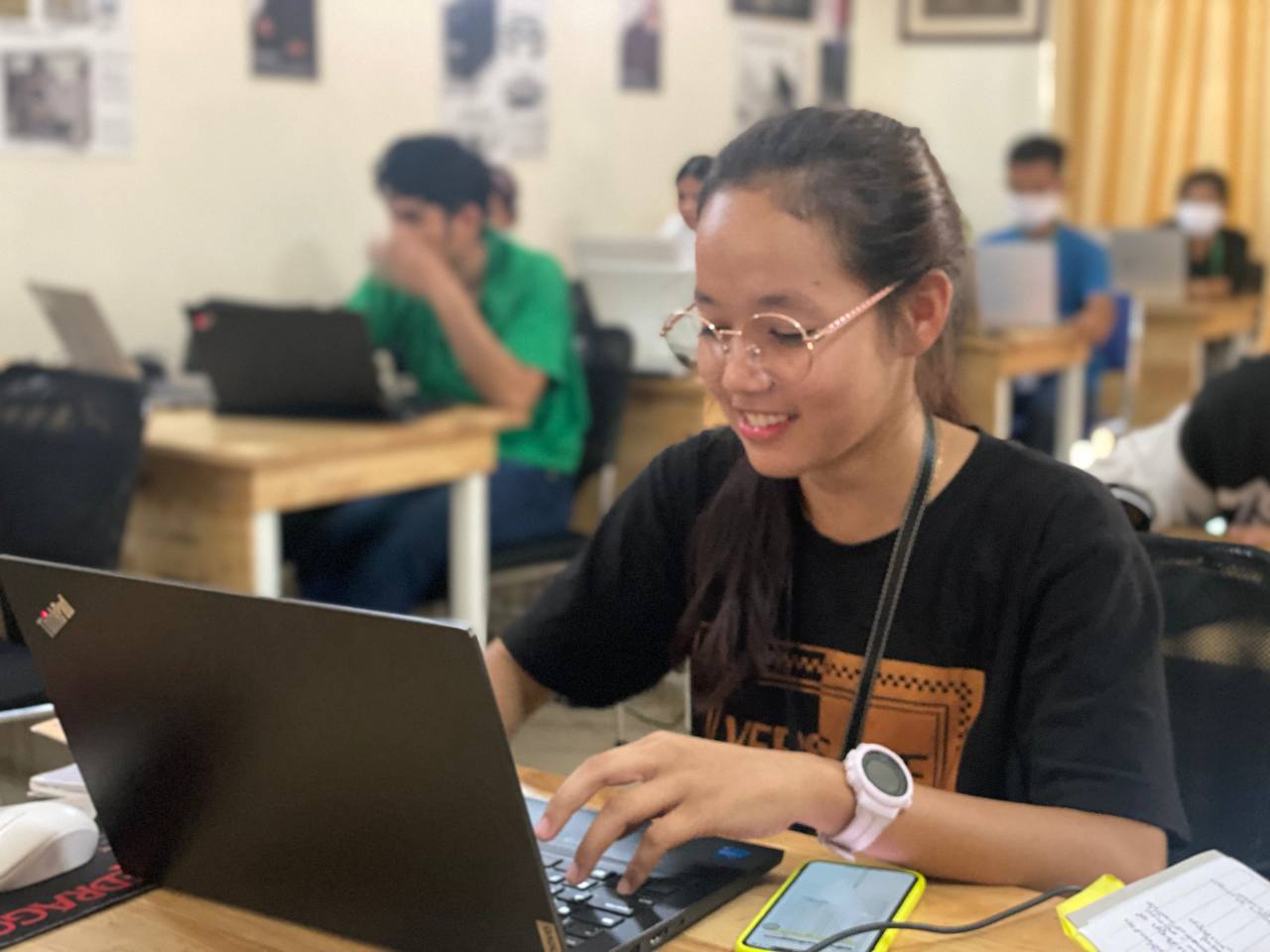
How have these challenges impacted your communities?
As much as our team has had to cope with fewer resources, our scholarship students, youth entrepreneurs, and PEPY alumni are also facing many difficulties. The majority of young people who are working in the city are not just supporting themselves but their families and, in some cases, even their extended family.
The PEPY team has worked hard to increase our monthly allowance to students and to provide financial planning to our entrepreneurs and alumni, but it is not enough to support them. When young people in our communities are struggling to make it by, even with a university or trade school degree, families in our target areas have doubts about the benefits of education. This fear ultimately leads to parents forcing their children to drop out of school to find work in their village or by working illegally abroad. We are now having to work twice as hard to not only maintain our programs but to keep youth from dropping out of high school, university, or vocational school even with a full scholarship.
What lessons learned do you have after coping with limited resources and funding?
We have learned that we need to prepare more for difficult scenarios. COVID-19 was a very challenging time for our well-being as we were all working well beyond our scheduled work to support our community and rethink our program delivery.
What we did not expect was for so many challenges to arise after the lockdowns ended. The entire world is struggling and there seems to be a new emerging crisis every week. Many of our funders are shifting their focus and looking inward to support their local communities. Many donors are struggling with their own finances and are no longer able to contribute at the same level. Inflation is exacerbating our fundraising challenges and affecting our ability to operate. We need to diversify our funding, become more self-reliant, and rethink our outreach strategies to connect with potential funders in our region.
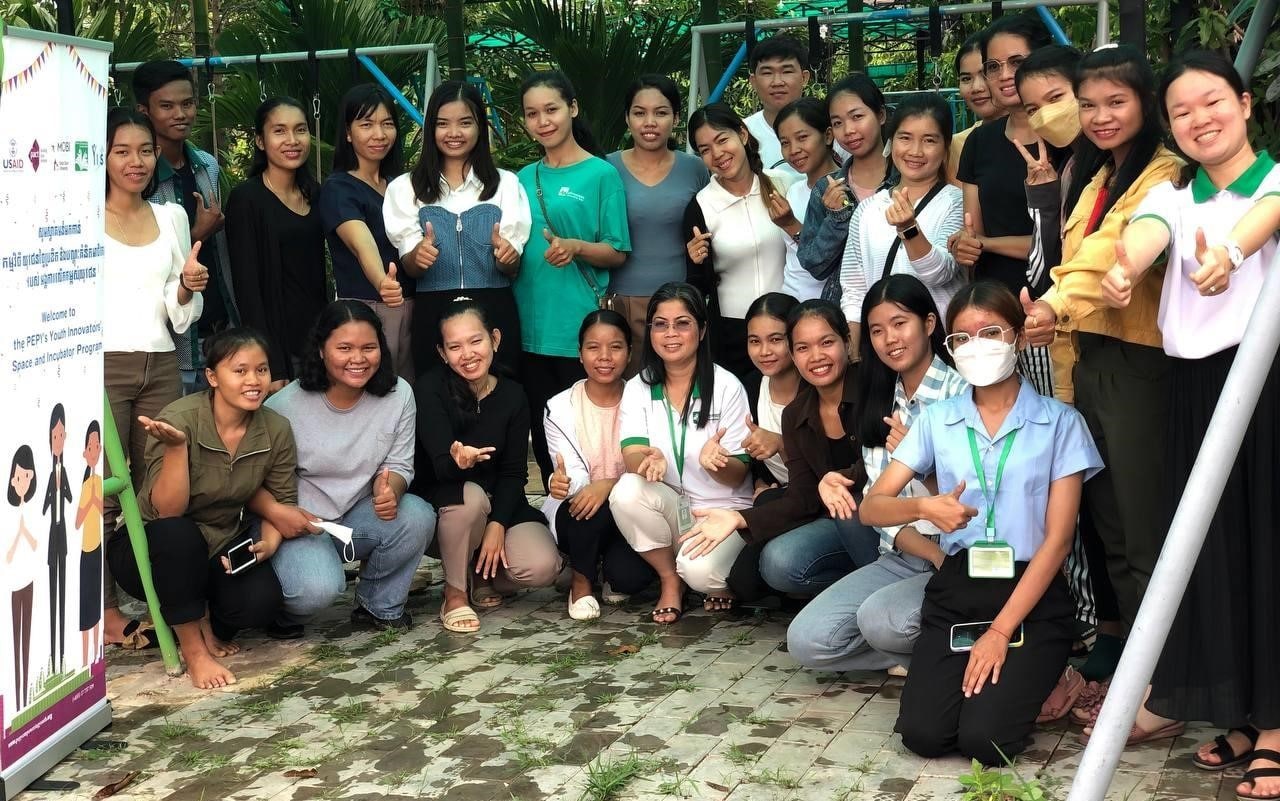
What do you believe is most important for your communities’ recovery?
We hope our government will do more to recognize and address poverty at the local level. Subsidies for basic foods or an expanded food support initiative (we have a card system identifying poverty status in Cambodia) would go a long way to support those with limited financial means.
In lieu of government support systems, advocating and creating more opportunities for jobs with better wages is our ultimate path forward. Our entrepreneurship program called the Youth Innovators’ Space and Incubator seeks to strengthen and expand the job market in Siem Reap Province and will lead to more skilled job opportunities in the region and participation in the gig economy as a freelancer. We are also working on worker’s advocacy initiatives through our socioeconomic rights workshops. We hope to see more young people working toward fair wages for their labor and services.
Lastly, we believe that in order for our communities to recover, we need to keep youth on the right path and encourage them to stay in school. Even when the economy is in trouble, having an education will ultimately put them in a better position to find employment. If we can continue spreading that message to our communities and connecting youth to role models, we believe that young people can emerge from this crisis stronger than before.
Guatemala: Comunidad La Esperanza – Hilda Vásquez, Director
What challenges are you facing due to inflation?
The news says that inflation has increased by 10% but what we are experiencing is that prices have risen much more than that. For instance, public transportation has increased more than 100% since it restarted after the pandemic and has not gone down. Several of our students and teachers can’t afford those prices and are having to walk so that they can afford to eat.
Gas prices fluctuate but food keeps increasing in cost. Basic food items such as flour, eggs, and milk have increased from 50-100%. When it comes to basic public services like electricity and water, families are having to make hard decisions about their consumption.
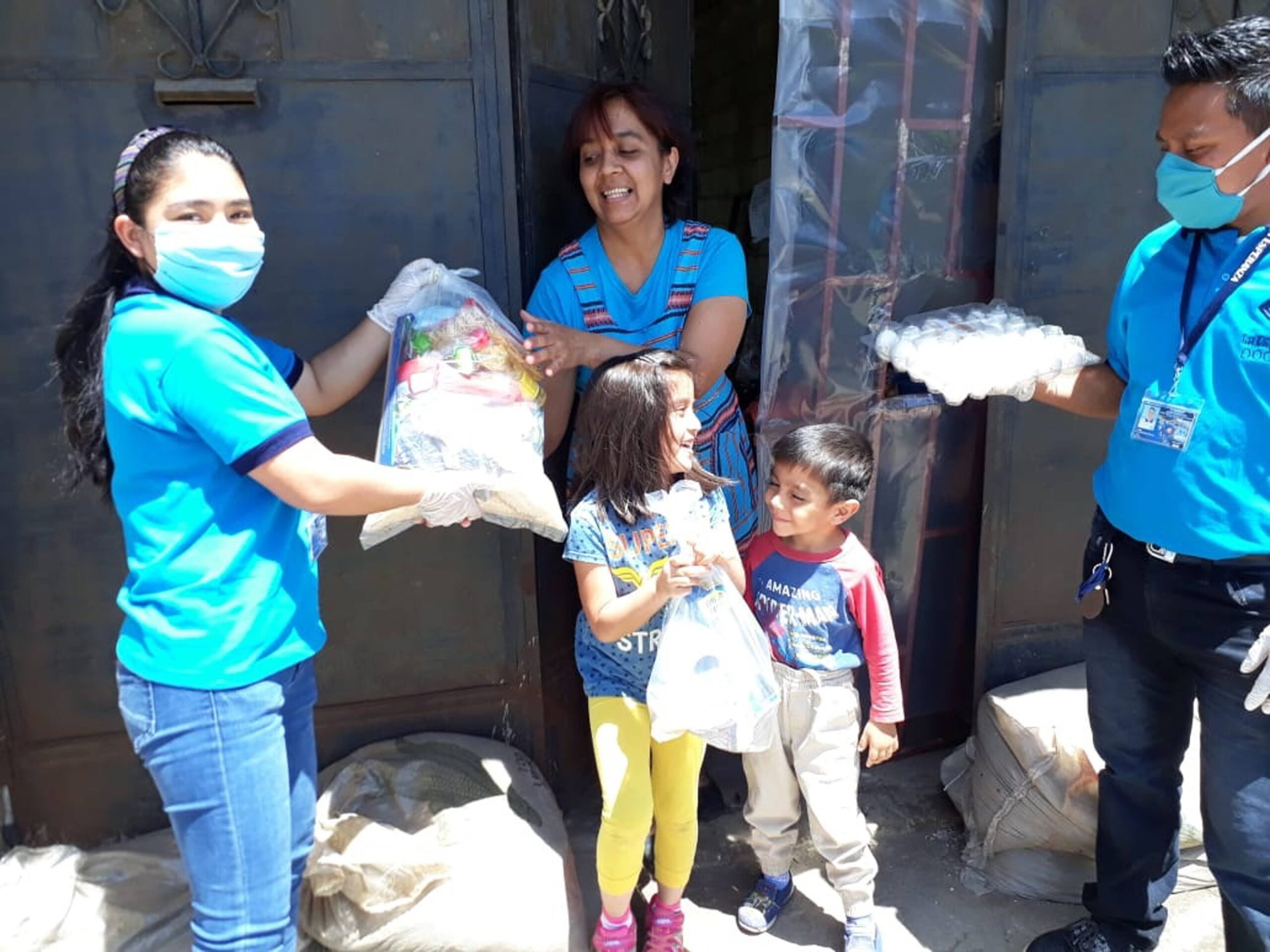
How have these challenges impacted your communities?
Minimum wages increased by 4% to 7% depending on the region in Guatemala in 2023 but fundraising has been harder. Often donors don’t want to support salaries or keep supporting the same amounts despite the legal increase. We are losing great teachers that are leaving to work as cashiers at supermarkets rather than continue teaching because of the difference in wages. It is even more difficult for non-profit schools like ours to raise enough funds. These teachers have degrees in education and a lot of passion but we can’t pay them enough despite how much we value their work.
The other challenge that we are experiencing is the decrease in student numbers. We require a modest monthly contribution to families to attend the school to support sustainability. Some students have dropped out or chosen free options. The problem is that those options either come with religious or political affiliations and/or the quality of the education is lower, and they lack empowering methods.
What lessons learned do you have after coping with limited resources and funding?
We are still learning and trying to figure out how to adapt. Fundraising has been more challenging in recent months because communities worldwide are being affected. We are betting on continuing to offer quality education to our students and fulfilling our mission. We have no choice but to continue being resilient, which is often the case in Guatemala. We have been trying to cut costs where possible to cover the most essential needs.
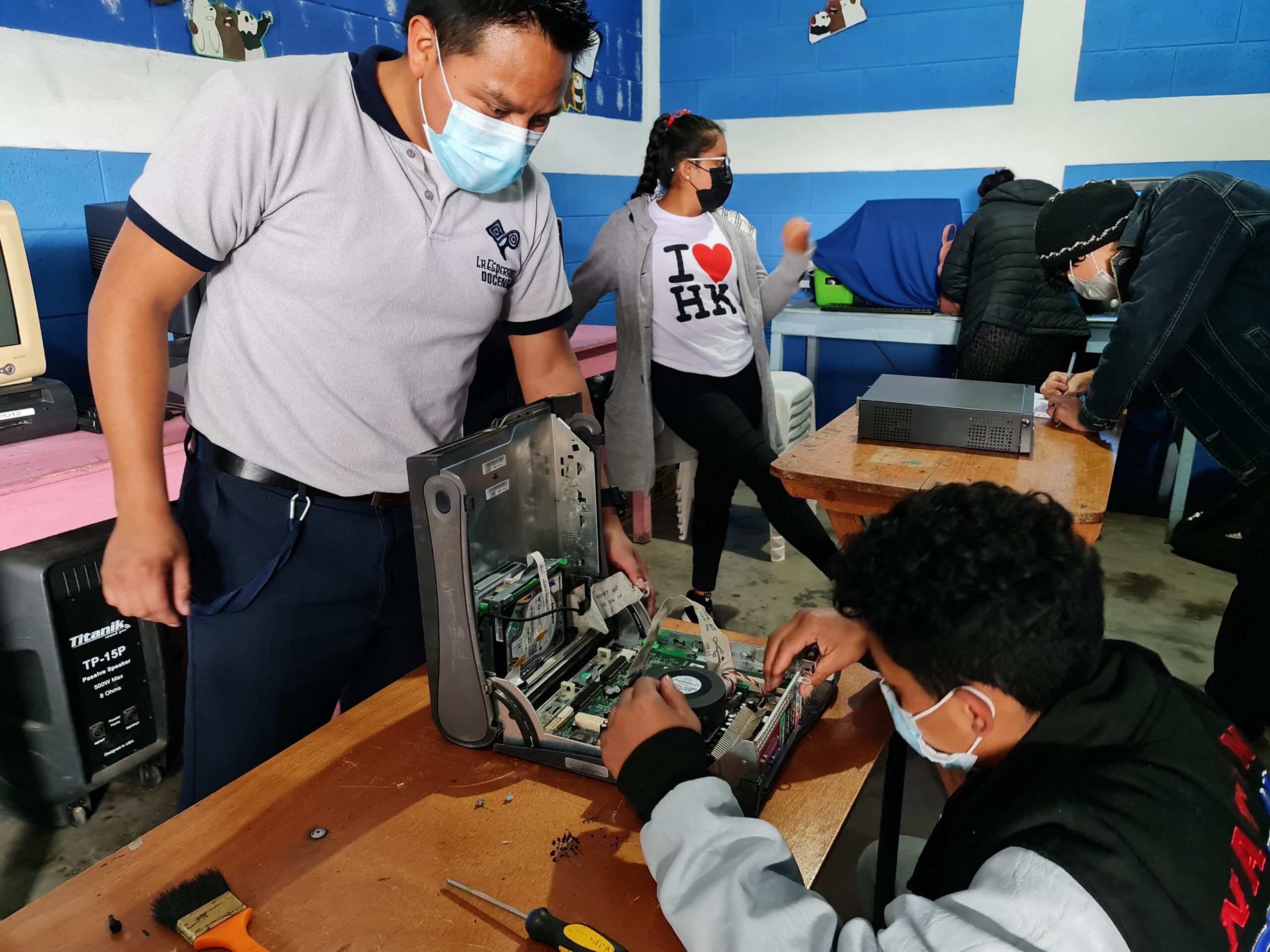
What do you believe is most important for your communities’ recovery?
We are teaching our students about entrepreneurship, to be active locally, and support their communities. We teach about sustainability and I think that will help to improve things locally. But this issue goes far beyond. One of the biggest issues in Guatemala is massive companies’ lack of consciousness, social, and environmental responsibility, and the lack of regulations for these companies from our government. Right now, we have a higher cost of living than countries with better wages. We need more regulations for these big enterprises and monopolies that keep sinking the population.
It’s clear to see that many similar challenges are being experienced across the world and we hope the situation improves for GoPhil partners and their communities soon.
Thank you for taking the time to learn more about our partners’ experiences. We welcome you to reach out if you have any questions or would like to learn more about our collective efforts to help create a more just and equitable world.
